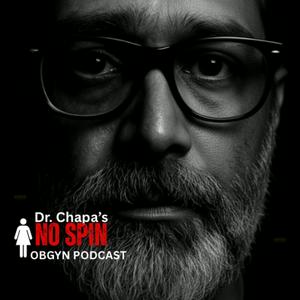A study published in Nature Communications, published Feb 19, 2026, found that “pregnancy physically alters a woman’s brain, with a second pregnancy bringing even more profound effects.” The researchers “performed brain scans on 110 women. Some were first-time mothers, others second-time moms, and some nulliparous women. Results showed that during a first pregnancy, the greatest changes occur in the structure and activity of the ‘default mode network’ – the brain system responsible for self-reflection and mind wandering. Are these changes bad? Are they associated with long term hard? Are they adaptive? It’s a complex question, with real answers. Listen in for details.
1. Straathof, M., Halmans, S., Pouwels, P.J.W. et al. The effects of a second pregnancy on women’s brain structure and function. Nat Commun 17, 1495 (2026). https://doi.org/10.1038/s41467-026-69370-8
2. de Lange AG, Kaufmann T, van der Meer D, et al. Population-Based Neuroimaging Reveals Traces of Childbirth in the Maternal Brain. Proceedings of the National Academy of Sciences of the United States of America. 2019.
3. Aleknaviciute J, Evans TE, Aribas E, et al.)Long-Term Association of Pregnancy and Maternal Brain Structure: The Rotterdam Study. European Journal of Epidemiology. 2022.
4. Jung JH, Lee GW, Lee JH, et al. Multiparity, Brain Atrophy, and Cognitive Decline. Frontiers in Aging Neuroscience. 2020.
5. Hu A, Xiong L, Wei H, et al. Association of Menarche, Menopause, and Reproductive History With Cognitive Performance in Older US Women: A Cross-Sectional Study From NHANES 2011-2014. BMC Public Health. 2025.
6. Orchard ER, Ward PGD, Sforazzini F, et al. Relationship Between Parenthood and Cortical Thickness in Late Adulthood. PloS One. 2020
7. Hoekzema E, Barba-Müller E, Pozzobon C, et al. Pregnancy Leads to Long-Lasting Changes in Human Brain Structure. Nature Neuroscience. 2017.
8. de Lange AG, Barth C, Kaufmann T, et al. Women's Brain Aging: Effects of Sex-Hormone Exposure, Pregnancies, and Genetic Risk for Alzheimer's Disease. Human Brain Mapping. 2020.
Visit our SPONSOR's LINK to learn more about the Hemorrhage view CS Drape: https://www.perspectivemedical.org/


